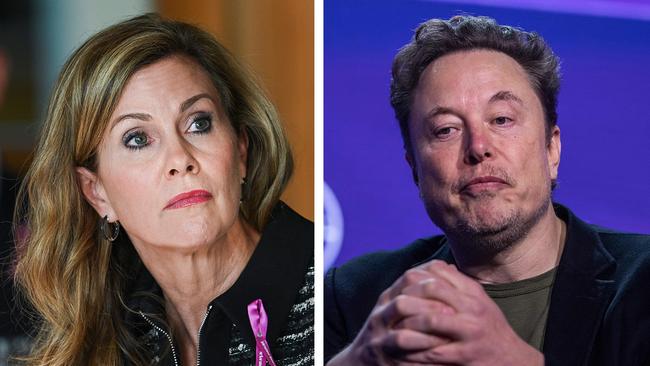eSafety take-down notice likely ‘ignored or disparaged’ in other countries, court rules
The eSafety commissioner’s attempt to force Elon Musk’s X to remove a stabbing video from its platform worldwide was not reasonable, the Federal Court has ruled.

Australia’s eSafety commissioner’s attempt to force Elon Musk’s X to entirely remove a stabbing video from its platform worldwide was not reasonable, the Federal Court has ruled.
On Monday, a temporary order by Julie Inman Grant to block Australians from viewing footage of the alleged terrorist stabbing attack of Sydney bishop Mar Mari Emmanuel was refused in a win for tech giant X.
Ms Inman Grant ordered X (formerly Twitter) to remove access to the video for Australian users last month, slapping the footage with a Class 1 classification, reserved for high-impact violent or child sex abuse material.
While X complied with a take-down notice, “geo-blocking” the content, Australian users with VPNs could still watch the attack on the platform and the tech company has refused to totally remove the footage from its platform.
Federal Court judge Geoffrey Kennett released his reasons for refusing the temporary order on Tuesday, finding X Corp succeeded in its argument that removing the footage for all users globally was not a “reasonable” step it should take in order to comply with the eSafety take down notice.
“The argument that making the 65 URLs inaccessible to all users of X Corp’s platform everywhere in the world is not a step that it is ‘reasonable’ to require X Corp to perform in order to ensure that the URLs are inaccessible to Australian users (and therefore is not a step required by the removal notice) is powerful,” justice Kennett said.
“If given the reach contended for by the Commissioner, the removal notice would govern (and subject to punitive consequences under Australian law) the activities of a foreign corporation in the United States (where X Corp’s corporate decision-making occurs) and every country where its servers are located,” he said.
“The Commissioner, exercising her power under s 109, would be deciding what users of social media services throughout the world were allowed to see on those services.”
As well, if the edict — that X should take down the content globally — was ordered, it’s likely that it would not be taken seriously.
“The potential consequences for orderly and amicable relations between nations, if a notice with the breadth contended for were enforced, are obvious,” justice Kennett said. “Most likely, the notice would be ignored or disparaged in other countries.
“The result is that … the “reasonable steps” required by a removal notice issued under s 109 do not include the steps which the Commissioner seeks to compel X Corp to take in the present case.
“For these reasons I have come to the view, based on the arguments advanced at this interlocutory stage, that the Commissioner will not succeed in establishing that compliance with the removal notice entails blocking access to the 65 URLs by all users of X Corp.”



To join the conversation, please log in. Don't have an account? Register
Join the conversation, you are commenting as Logout